Debt Collection in Europe No Win-No Fee
Collect overdue invoices across 45 European jurisdictions through our network of locally licensed agencies and law firms. Upload in minutes, monitor every step in real time, and pay only a small, risk-free success fee once cash is recovered.
Our Coverage in Europe
Recover debts in 45 European jurisdictions through locally licensed agencies and law firms—no language barriers, no compliance headaches.
Learn more about our most requested markets right now: read the German debt-recovery guide, explore debt collection in France, meet our local partner in Italy, discover how to collect debts in Spain, and review the Netherlands recovery process.
View all 45 European countries we cover:
Need coverage beyond Europe?
Debitura’s no-win-no-fee model is live on every continent—explore our North America hub for the USA, Canada and Mexico, our Asia hub spanning China to the Gulf States, our Africa hub covering 50+ jurisdictions, our Oceania hub for Australia, New Zealand and the Pacific, and our South America hub serving Brazil, Argentina and the wider region— all under one global contract and the same real-time dashboard.

How Debt Collection in Europe Works
- Upload Your Claim (2 min). Drag-and-drop invoices or sync via REST API / QuickBooks / Xero or other integrations.
- We Assign a Licensed Local Expert. Debitura routes the file to a vetted agency or law firm in the debtor’s country within 24 h.
- Amicable Outreach Begins. Native-language emails, calls and letters aim to resolve most cases in 30-60 days (exclusive collection period is 6 months)
- Legal & Enforcement Options. If needed, we launch an EU Payment Order, Small-Claims action or full litigation by a local lawyer—always with up-front cost visibility.
- Get Paid — or Pay Nothing. Funds go straight to your account; you owe only our small success fee when recovery is confirmed.
Why Choose Debitura for Debt Collection in Europe
One contract unlocks locally licensed partners in all 45 European countries. Upload invoices in minutes, watch progress live, and pay nothing up-front.
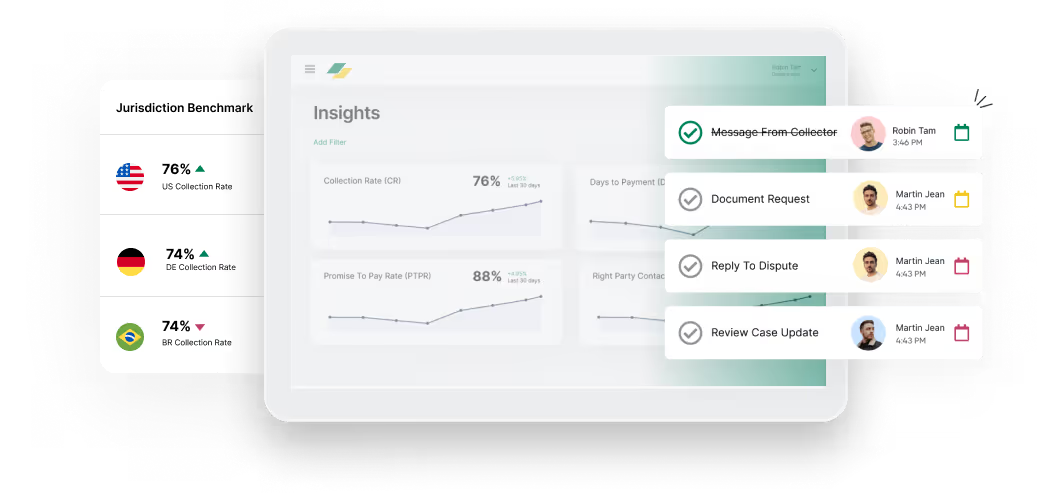
No Win-No-Fee Debt Collection in Europe
Debitura pools the buying power of thousands of European businesses to negotiate rates typically reserved for multinationals—so you gain top-tier local expertise without an enterprise-level price tag.

FAQ – Debt Collection in Europe
Got questions about recovering debts across Europe? Browse the answers below—or email us at contact@debitura.com for help with a specific case.
Legal & Regulatory Framework for Debt Collection in Europe
Understand the laws, procedures and enforcement tools that govern B2B and consumer debt recovery across 45 European jurisdictions.
Key Laws Regulating Debt Collection in Europe
Europe’s debt-collection landscape is governed by a blend of EU-wide regulations and national licensing laws. Four frameworks shape every compliant recovery:
- Late-Payment Directive 2011/7/EU — Sets default payment limits at 30 days for public bodies and 60 days for B2B invoices; lets creditors add a flat €40 compensation and statutory interest at least 8 percentage points above the ECB base rate on every late invoice.
Source: EUR-Lex - GDPR (Regulation 2016/679) — Treats debt data as “personal data”. Collectors must rely on a lawful basis (usually “legitimate interest”) and apply data-minimisation; controllers must log consent for any automated debtor profiling.
Source: EUR-Lex - National Licensing Rules — Most Member States require a local licence or register entry for third-party collections. In Germany, agencies must appear in the Legal Services Register (RDG) before contacting debtors; breaches can void claims and incur fines. Italy obliges collectors to obtain prefectural authorisation, while France applies a statutory code of conduct even without a formal licence. Local compliance is therefore essential.
- Brussels I Recast (Reg. 1215/2012) — Harmonises jurisdiction rules and makes EU civil judgments automatically enforceable in every Member State without a separate exequatur. Creditors normally sue in the debtor’s domicile unless a contract says otherwise.
Source: EUR-Lex
Debitura’s platform is built around these rules: every partner is locally licensed, GDPR-vetted, and able to fast-track claims under Brussels I. The result is fully compliant, cross-border recovery—without the legal guesswork.
Amicable Debt Collection in Europe
Across the EU, creditors are expected to try amicable (pre-legal) recovery before invoking the courts. A short, structured reminder campaign not only speeds payment but is also required in several jurisdictions.
Why it matters – The EU Late-Payment Observatory reports that 47 % of European businesses still receive invoices late, yet most debtors settle after one written reminder and a follow-up call.
- Standard practice – Creditors issue a formal demand letter that gives the debtor 7–14 days to pay before statutory interest and the €40 surcharge apply. For example, in Germany § 286(1) BGB makes a debtor officially “in default” only after they receive a Mahnung. In France, a judge will grant an order for payment only when amicable efforts have demonstrably failed
- Permitted contact – Each country caps call frequency differently, but written reminders (email, registered letter or local courier) plus one to three phone attempts meet the conduct rules across the EU.
- Cost recovery – Once the debtor is in default, Article 6 of Directive 2011/7/EU allows you to add interest at least 8 percentage points above the ECB rate and a €40 fixed fee (Source: Directive 2011/7/EU)
- With Debitura’s licensed local partners handling these steps in the debtor’s language and legal context, most debts are cleared before court fees ever arise.
Judicial Debt Collection in Europe
When amicable efforts fail, creditors can turn to the EU’s harmonised court tools to secure and enforce payment across borders.
- Jurisdiction & free circulation of judgments — Under Brussels I Recast Regulation 1215/2012, creditors generally sue in the debtor’s domicile; the resulting judgment is automatically enforceable in every Member State without exequatur formalities.
- European Payment Order (EPO) — For uncontested debts, Regulation 1896/2006 lets you obtain a court-stamped payment order using a single standard form. The court issues the order within about 30 days; if the debtor fails to object within another 30 days, the EPO becomes immediately enforceable EU-wide (except Denmark).
- European Small-Claims Procedure (ESCP) — For contested claims up to €5 000, Regulation 861/2007 (as amended by 2015/2421) provides a written, largely paper-only process. Judgments delivered under ESCP are enforceable in any Member State without further formalities.
- National payment-order shortcuts — Many EU countries also run domestic fast-track systems (e.g., Germany’s Mahnbescheid, Spain’s monitorio). These remain useful when both parties are domiciled in the same state and can feed directly into cross-border enforcement under Brussels I.
- Typical timelines & costs — EPO filings cost €40–€80 in court fees and conclude in 60–90 days when uncontested. Small-claims cases average 4–6 months from filing to judgment. Debitura provides fixed-price quotes for each option before you commit.
Debt Enforcement in Europe
Once you hold an enforceable title—whether a domestic judgment, a European Payment Order (EPO) or a European Small-Claims judgment—recovery moves to the enforcement phase, handled by court officers or bailiffs in the debtor’s country.
- Automatic recognition — Thanks to Brussels I Recast, civil judgments issued in one Member State can be enforced in another without exequatur formalities.
- European Enforcement Order (EEO) — For uncontested claims, Regulation 805/2004 lets a creditor convert a domestic judgment into an EEO certificate; enforcement abroad then proceeds exactly like a local judgment.
Source: - Asset freezing before enforcement — If you fear dissipation of funds, Regulation 655/2014 enables a European Account Preservation Order (EAPO) to freeze a debtor’s bank account in any Member State (except DK) without notice.
- The EU e-Justice Portal — Enforcement of judgments provides country-by-country fee tables; bailiff deposits typically range from €80 to €150, and first actions start within 4–8 weeks of receiving the enforcement application.
Insolvency Proceedings in Europe
If the debtor is insolvent, standard enforcement halts and creditors must join a collective insolvency or restructuring procedure in the debtor’s home country.
- Cross-border coordination — The EU Insolvency Regulation 2015/848 automatically recognises a “main” proceeding opened in the debtor’s COMI (centre of main interests) and any “secondary” cases elsewhere. Court orders and liquidator powers circulate EU-wide without exequatur.
- Automatic stay & creditor ranking — Opening a main proceeding triggers an immediate stay on new enforcement. Secured creditors are paid first from encumbered assets; employee wages and certain tax claims follow; unsecured trade creditors share the remainder pari passu under national priority rules.
- Proof-of-claim deadlines — Article 55 of the Regulation requires foreign creditors to lodge their claims within one month of the notice published in the EU Insolvency Register; late filings risk exclusion from distributions.
- Preventive restructuring — The Directive 2019/1023 obliges every Member State to offer a pre-insolvency framework that allows viable businesses to restructure and stay operations; a four-month moratorium can be extended to one year with court approval.
- Discharge timelines — To promote second chances, the Directive caps entrepreneur debt discharge at three years; Germany already applies a three-year discharge (§ 300 InsO), while France can grant discharge in as little as one year for liquidations.
Small-Claims Procedures in Europe
For low-value, cross-border debts, the European Small-Claims Procedure (ESCP) offers a fast, largely paper-only alternative to ordinary litigation.
- Scope & threshold – The ESCP covers civil or commercial claims up to €5 000 (excluding interest / costs) when at least one party is domiciled in another Member State.
- Forms & language – File Form A with supporting evidence in the language of the court; the court serves the debtor and blank Form C within 14 days.
- Reply & decision speed – The defendant has 30 days to answer. The court must issue a decision within 30 days of the defence (or expiry) using Form D.
- Remote hearings – Hearings are rare; if needed, they can be held by video or teleconference.
- Enforceability – The judgment is automatically enforceable EU-wide; you need only the certificate (Form D) plus a translation if required.
- Want step-by-step instructions? See our Small-Claims Court hub for templates, fees and filing tips. For country-specific guidance, jump straight to France, Spain or Germany.
.svg)
.avif)
.avif)
.png)
.avif)
.avif)
.avif)
.png)
.avif)
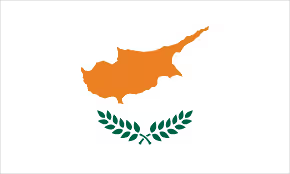
.avif)
.avif)
.png)
.avif)
.avif)
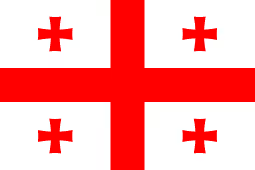
.png)
.avif)
.avif)
.avif)
.avif)
.avif)
.avif)
.png)
.avif)

.png)
.png)

.avif)
.avif)
.avif)
.avif)

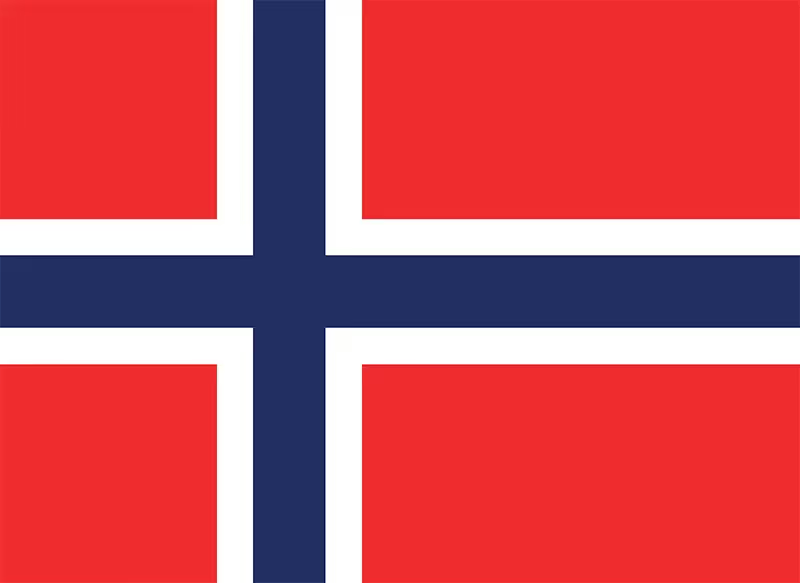
.png)
.avif)
.png)
.png)
.avif)
.avif)
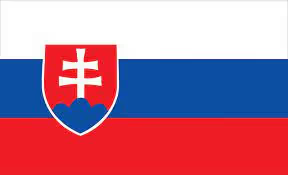
.avif)
.avif)
.png)
.avif)
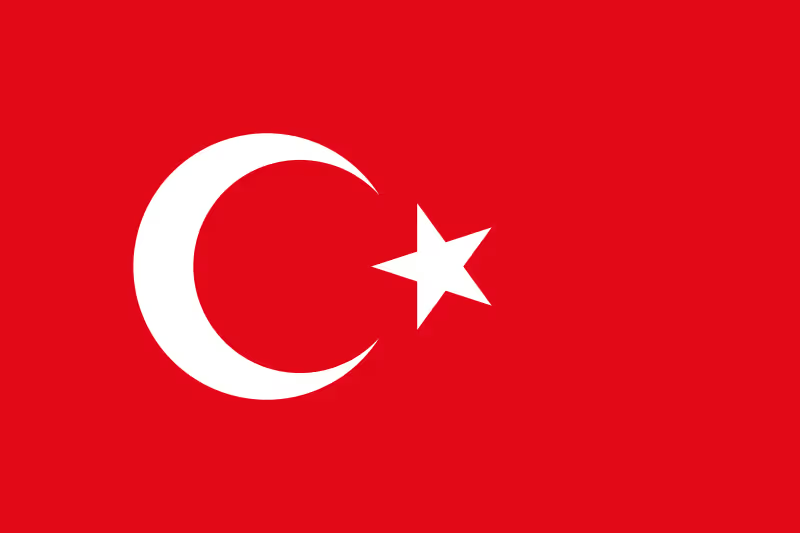
.png)
.png)

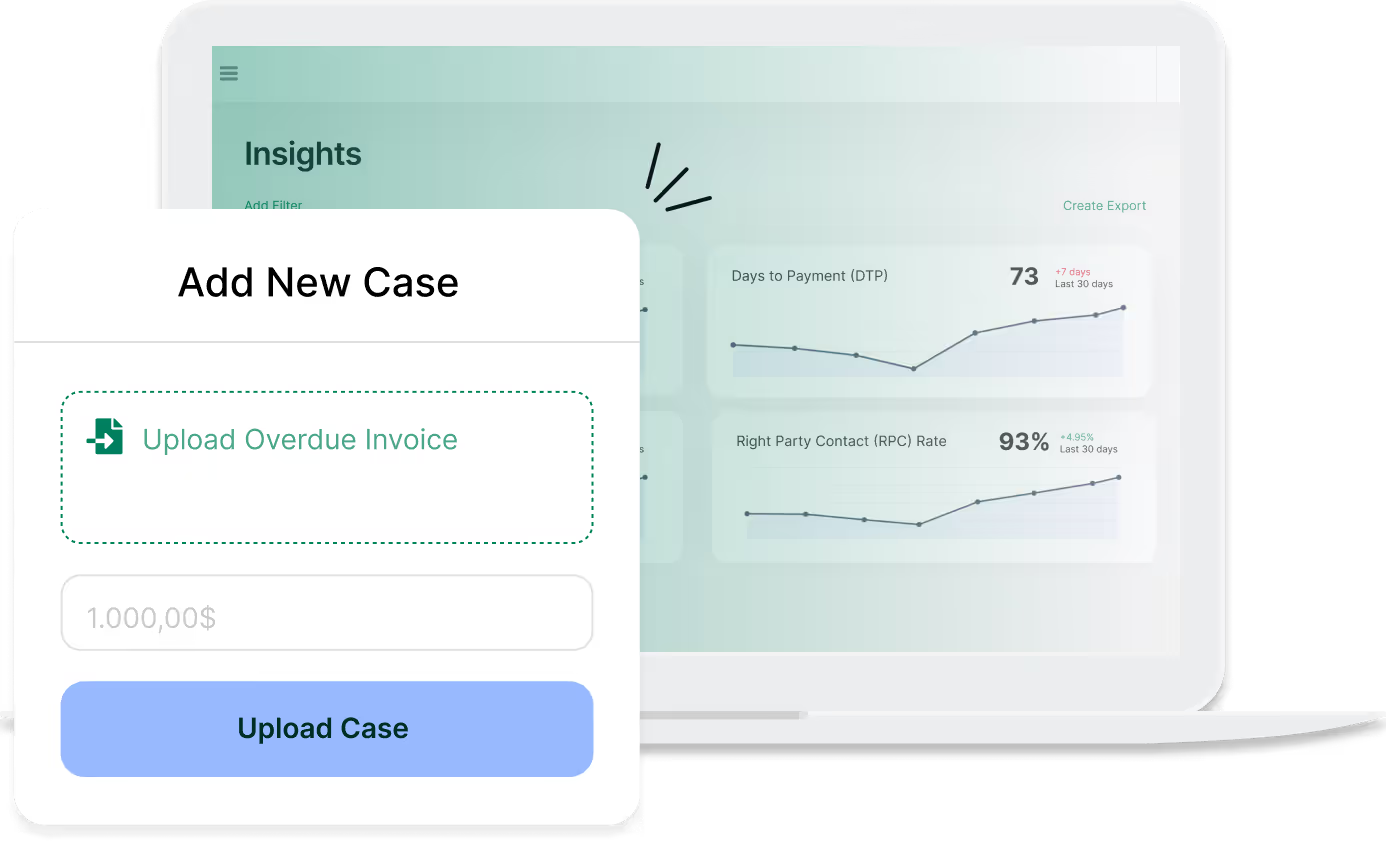
.svg)
.webp)
